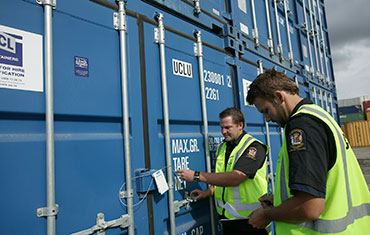Valuable Tips For Successful Import Customs Clearance
As a freight forwarder facing customs clearance for import and export of goods, knowing a logistics partner such as LA 24-7 Forwarder is handling the details feels like a win-win situation. It’s a win-win because international shipping, especially of air freight, only goes smooth if the paperwork is done properly and the customs broker is prepared for the unique challenges each port of destination brings. Our company’s relationships with freight forwarding companies is above par because of our attention to detail when it comes to import customs clearance.
Customs Tariff And Customs Duty
Knowing the difference between the tariff and duty (or tax) required to be paid by importers into any country can be a confusing task. LA 24-7 Forwarder takes the hassle out of it all by using our knowledge of each foreign country’s particular rates and codes to make the process smooth and effortless.
A tariff refers to the classification of a commodity upon import or export. In many countries, such as Australia, importers must classify the product on their own. This requires accurate assessment to avoid penalties for misleading information. Often, there is a local department available to assist importers in defining which class goods fall under. For example, the United States International Trade Commission (USITC) publishes a harmonized tariff schedule document divided into chapters specific to the type of goods being imported. They contain the codes to be used in your documentation.
A duty is the tax paid on the declared value of a good prior to entering the country. Import duties sometimes are not required, and can vary greatly from product to product. They are always due prior to entering into a country for commerce reasons. In other words, they don’t leave the port without assessing the required customs duty. Failure to pay taxes on your imported goods could result in a lien on your property or against the merchandise. Fortunately, such items as household and personal goods are exempt from import duty.
LA 24-7 Forwarder includes both aspects of the international shipping process in their fees when contracting with us as a third-party logistics provider. By incorporating these into the fees, you can rest assured that every part of your import or export will run smoothly.
Understanding Import And Export
Importing an item means that you are bringing foreign products, usually intended for commerce, into a country that differs from the point of origin. Exporting an item refers to the exiting of goods from a country for the purpose of entering another country, again, usually for the purposes of commerce. Bringing goods into a foreign country requires following many regulations, dotting every “I” on paperwork, and paying customs fees. Importing, in particular, means paying taxes and classifying your good prior to entry being allowed. In addition, all countries require specific documentation, such as a customs declaration listing the goods to be taxed, be completed accurately and completely by the importing company or their customs broker.
Exporting an item refers to the exiting of a good from a point of origin with the intent of reaching a foreign destination. Usually, exportation is for the purposes of commerce, but international shipping can also be used for vehicles and personal goods, such as during a family move for work-related reasons. Exporting goods also requires a customs declaration in the United States. In addition, to verify legal possession of goods in the United States, a bill of lading and Electronic Export Identification (EEI) are used by the U.S. and even foreign entities. These represent the sale and purchase of goods as being legitimate and help reduce illegal exportation attempts.
Making sense of import customs clearance shouldn’t lead to a headache and lost profits. Take a moment to call LA 24-7 Forwarder at (800) 648-9889 for your FREE Quote right over the phone!

